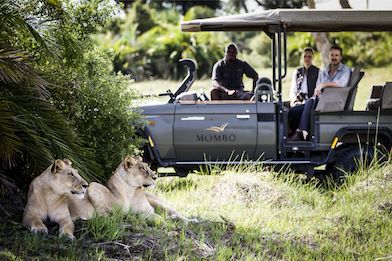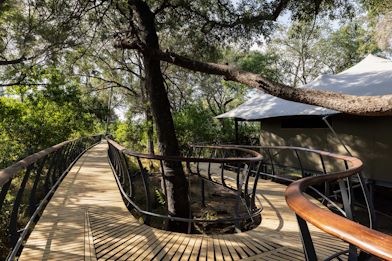Each incarnation of Serra Cafema has explored and enhanced its relationships with the spectacular natural world around it. The new Serra Cafema takes this to a new level, where the concept for the camp is expressed with reverence and respect for the Himba community, our partners in Serra Cafema.
The camp is comfortable, up-to-date and modern, incorporating fresh elements, while retaining the heart and soul of Serra Cafema. Natural materials that reflect the surrounding landscape ground the lodge in the earth. Stone sourced from the adjacent valley are used for feature walls and prominent defining structures, creating texture and a direct connection with the landscape and the guest’s experience.
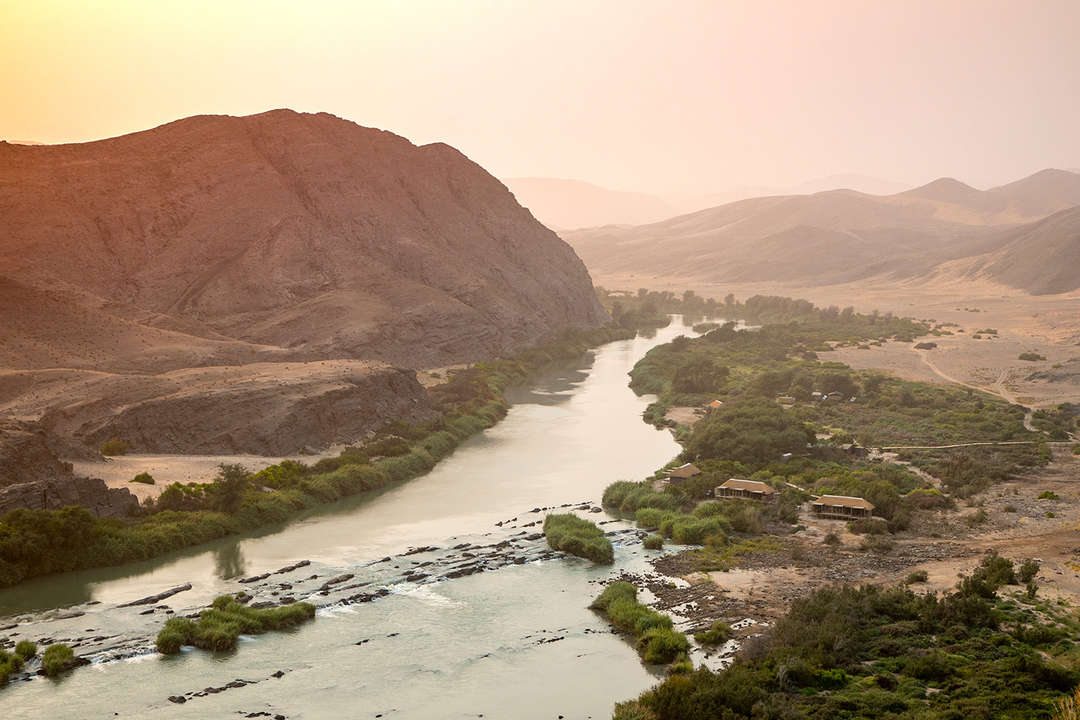
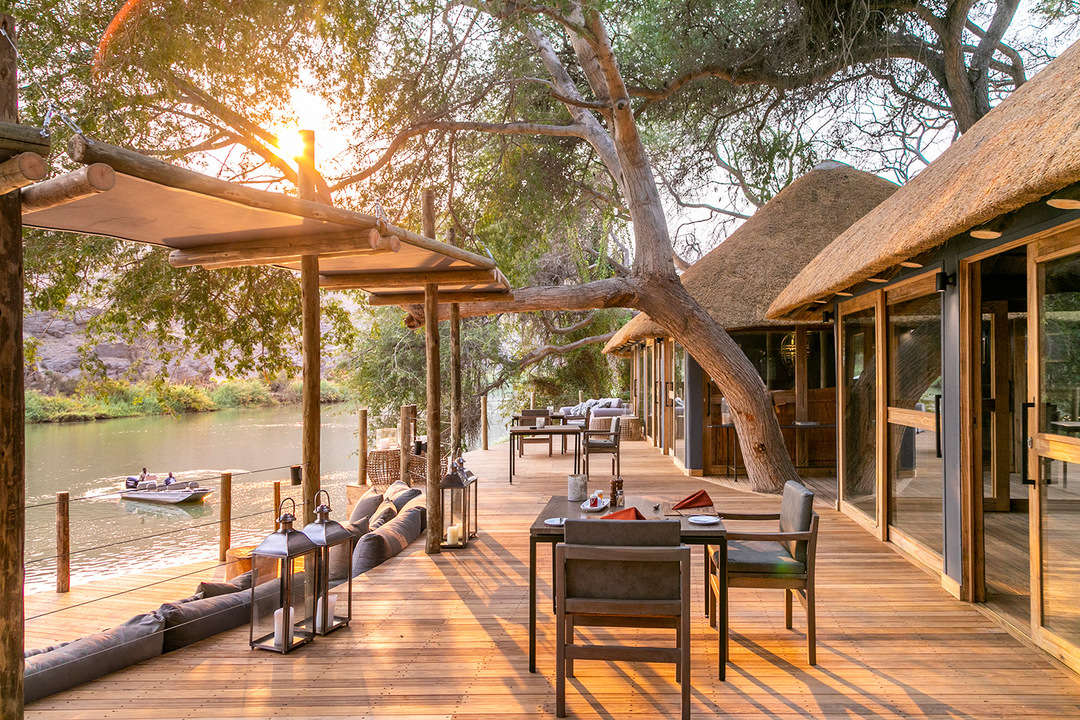
The primary axis of the social area is the fire. Overlooking the river in a lower level oval seated area ideal for night time stargazing, the fire draws guests for warmth and reflection. It is also a visual reminder of how critical fire is to Himba society, not only for cooking and cleansing, but also their separate, sacred fire, where milestones are celebrated and a connection to the ancestors is maintained.
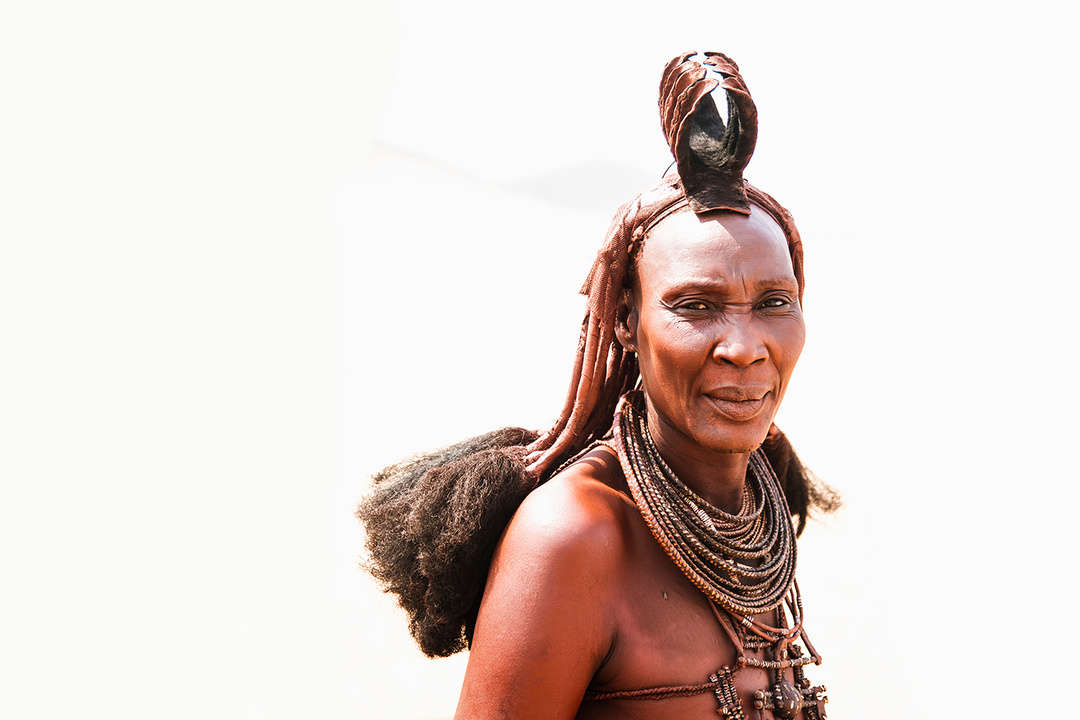
Eight guest rooms, including one family room, maximize the sense of space and privacy while enhancing the connection to natural elements and the Himba culture.
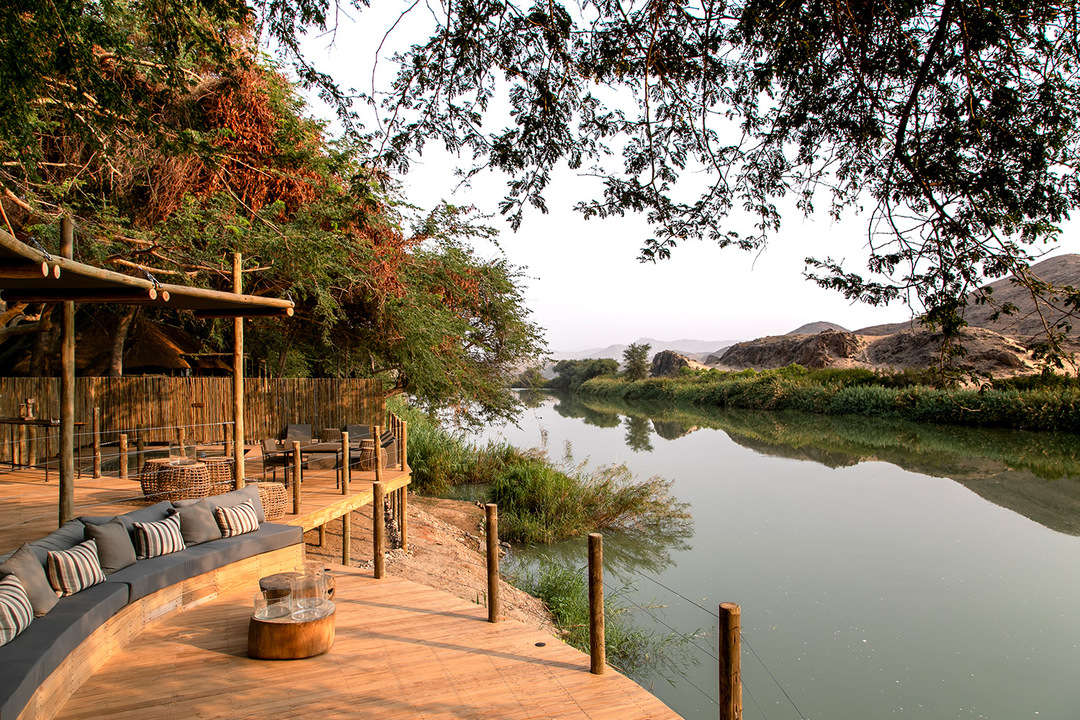
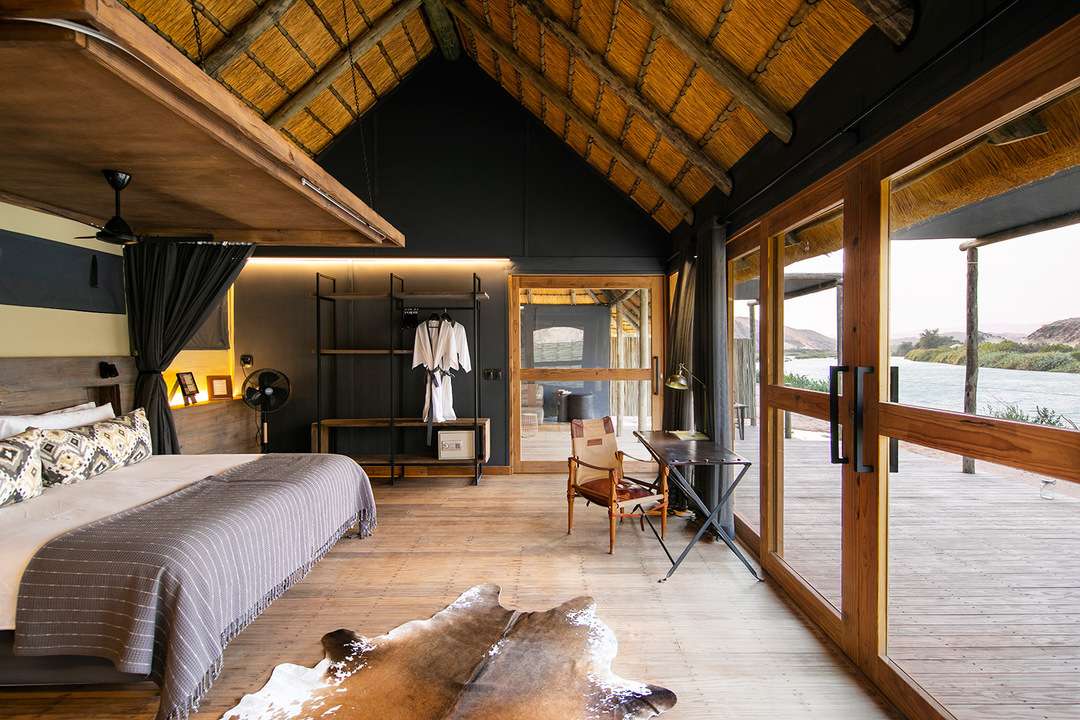
With views over the Kunene River and the wilds of Angola beyond, the rooms are luxuriously spacious, with a sunken seating area with a wine refrigerator and coffee and tea making facilities, an extra-large bed with a canopy of reclaimed wood and netting, indoor and outdoor showers, and a large private deck for enjoying the sights and sounds of the river, and private dining.
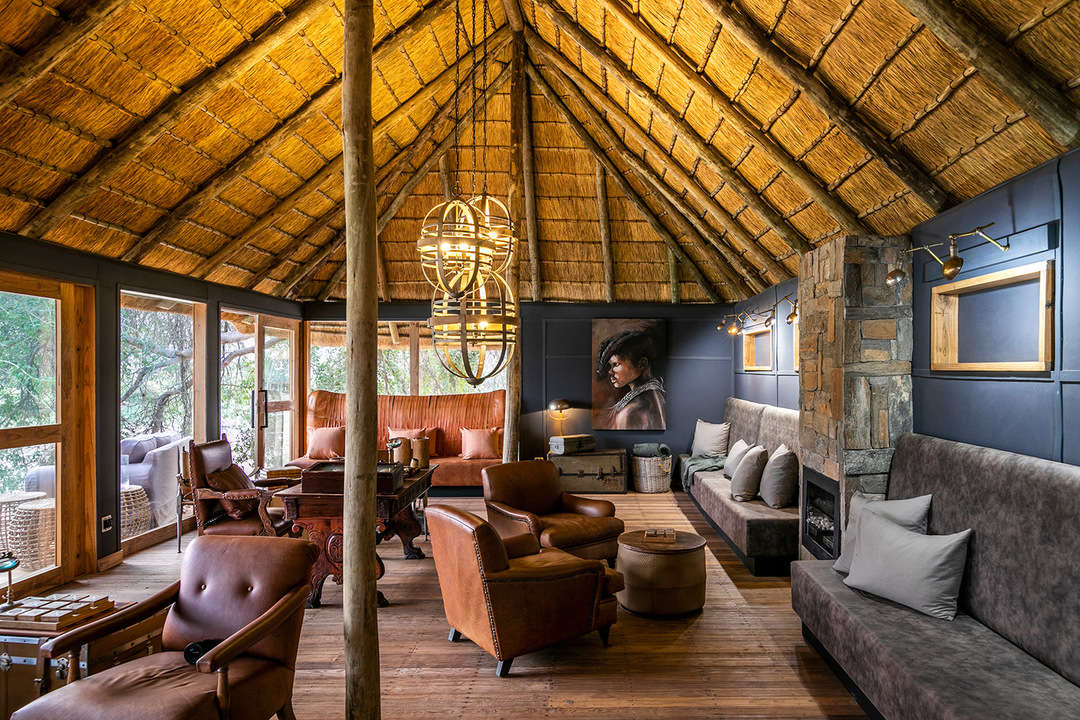
In the main areas, the sense of space and surprise continues, with angles that open to stunning views of the dunes, rocks and river. Simplicity and strong textures add to the beauty of the lodge and the use of Himba artifacts as art maintains the link to the people who are an integral part of the landscape and the camp.
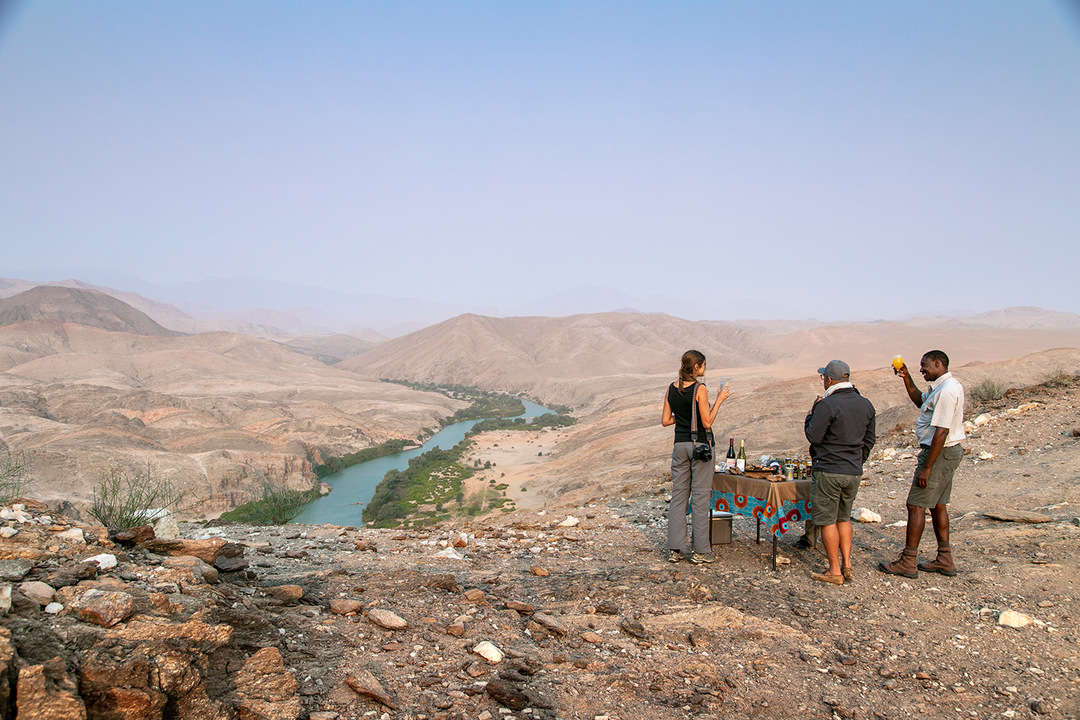
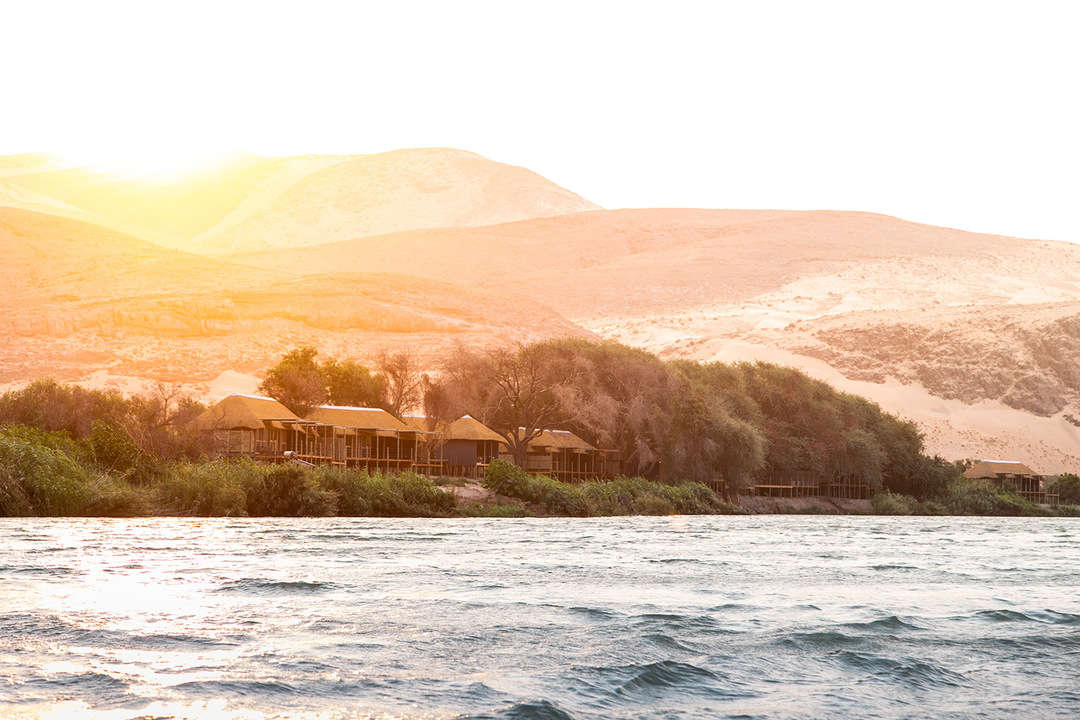

Wilderness Safaris’ ethos of maintaining a light footprint and giving back to the communities where we work were at the heart of the operation at Serra Cafema. Local community members were employed to assist with the rebuilding of the camp, and they will continue to benefit from the camp as our community partners.

The details within the camp are also uniquely Namibian. The servers and tables for the dining area at Serra Cafema were built by young craftsmen and women at TABLED, a social enterprise that gives orphans a future perspective by involving them in crafting design furniture.
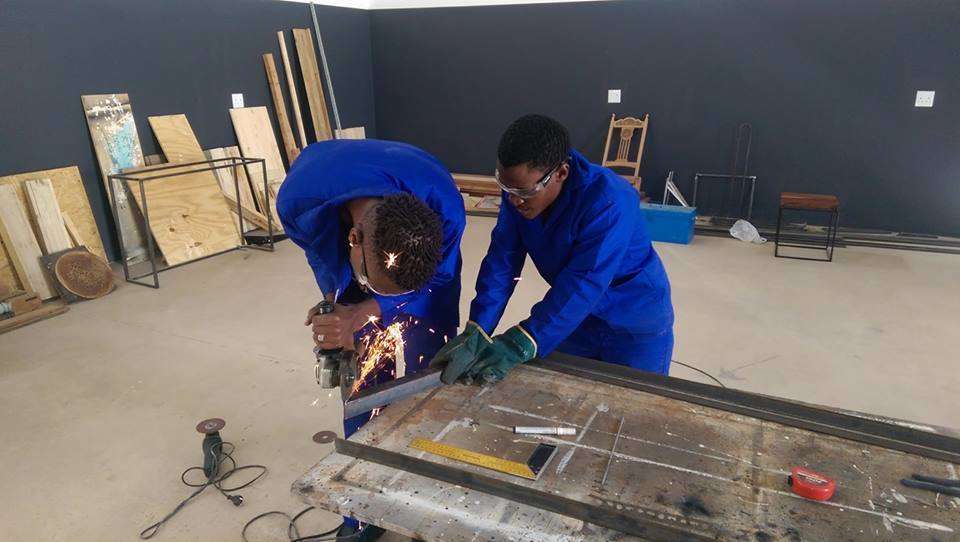
In keeping with the Himba tradition of wearing and using leather, we commissioned Myeisha, a Windhoek based company that provides training and employment for previously unskilled local labour, to produce rich, ochre-coloured leather wine folders, menu folders, and room folders.
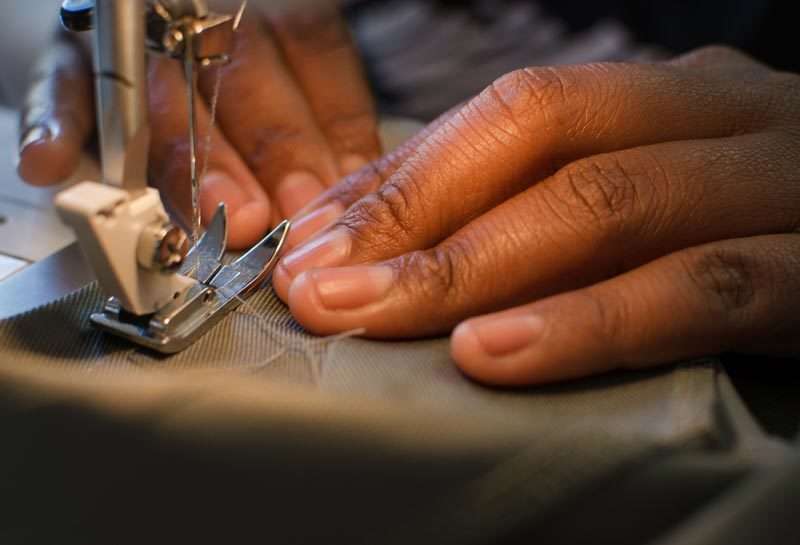
Taking the tradition of sustainably harvesting the resin from the Commiphora wildii tree and using it as perfume, the Himba women formed a partnership with a local company to create products called Mbiri. From their harvester-owned processing facility in northwestern Namibia, Mbiri developed its first bathroom range which will be launched and used exclusively at Serra Cafema.
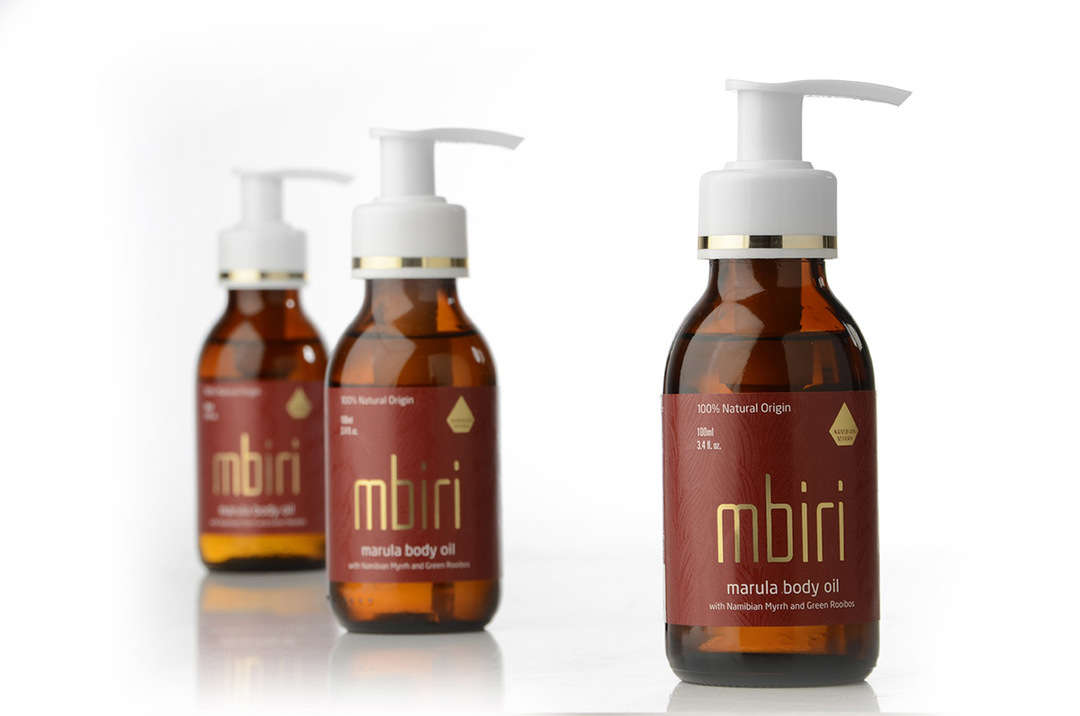
When the construction was finished, all unused building materials were taken to the Marienfluss Conservancy to build a shelter at the local school erected by Wilderness Safaris. The rest of the materials were given to the Conservancy for their needs.


